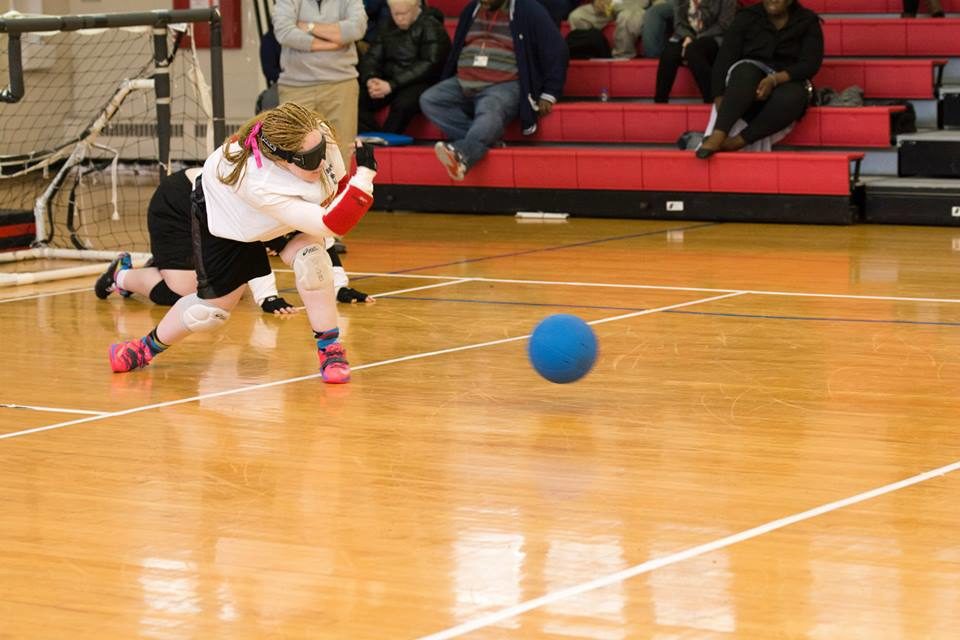A team of nine Drexel students has adapted the Paralympic sport goalball into a video game designed specifically for people who are blind or have visual impairments.
The community-focused undergraduate senior project is nominated for Dev Project of the Year at the Philly Geek Awards, which Technical.ly is co-organizing. The awards are this Sunday, Oct. 16 at the Free Library and tickets are $40.
Get tickets
Students TJ Heiney, Cho Gyn Min, Colton Terrace, Buzz Lakata, John Frankel, Jordan Stone, Ryan Crim, Richa Bhartia and Ryan Smith were advised by Professor Jeffrey Salvage.
“[The team] was pretty psyched,” Salvage said of the nomination. “One of the things I told them going into this is this is the kind of project that if they did well on it, it would get a lot of external attention.”
The original sport of goalball involves two teams of three players, all wearing black eye shades to completely block their vision. Each team defends three goal nets on their side of the court. A rattling ball alerts players so they know where it’s coming from and can move accordingly to make a save.
The video game uses recorded audio that mimics a real goalball game and a vibrating controller which allows players to navigate the virtual court with these auditory and tactile cues.
As they developed it, the team tested their game with students from West Philly’s Overbrook School for the Blind. The idea for the game actually came from an Overbrook student, according to a Geekadelphia report.
Overbrook is a Drexel community partner and is one reason Drexel students’ senior projects have had an accessibility bent. In 2012, a team of Drexel students designed a series of smartphone apps for people with visual impairments. (One student on that team, Nate Vechiarrelli, went on to work at Center City tech company RJMetrics and is now at Jefferson on its tech team.)
Salvage said the Overbrook students became very invested in the game as they played. Some of them cursed when they missed a ball or jumped up excitedly when they scored.
“The kids were very enthusiastic,” Salvage said. “I wanted to see the visceral reaction I see when I go to a track meet. … When you think that it’s just haptic feedback and audio, it’s a pretty big accomplishment.”
Because the game is designed specifically for people who have visual impairments, it’s more challenging to play for people who do not.
“I hadn’t practiced hearing the difference in sounds [in the game],” Salvage said. “Someone who is visually impaired is going to pick up those nuances.”
He added that the students who designed the game had to practice multiple times before becoming adept.
Currently, the game’s server only supports one game at a time. Salvage said the next step is to build a backend on a cloud structure that could handle multiple games.
“One of the problems would be that cloud services don’t come for free,” he said. “I don’t have a handle on how much resources it would take to run this.”
A new team is involved in the project and Salvage said the project is now looking for corporate sponsors that would be interested in hosting the server. He reached out to Microsoft but has yet to hear back from the company. (Paging local Microsoft evangelist Dave Voyles?)
Salvage ultimately wants to hold a worldwide goalball video game tournament next spring. He hopes teams from about 50 schools would be interested in participating.
Drexel’s College of Computing and Informatics also has a website to donate to senior design projects.
Could these accessibility-minded Drexel game designers inspire a worldwide tournament?







